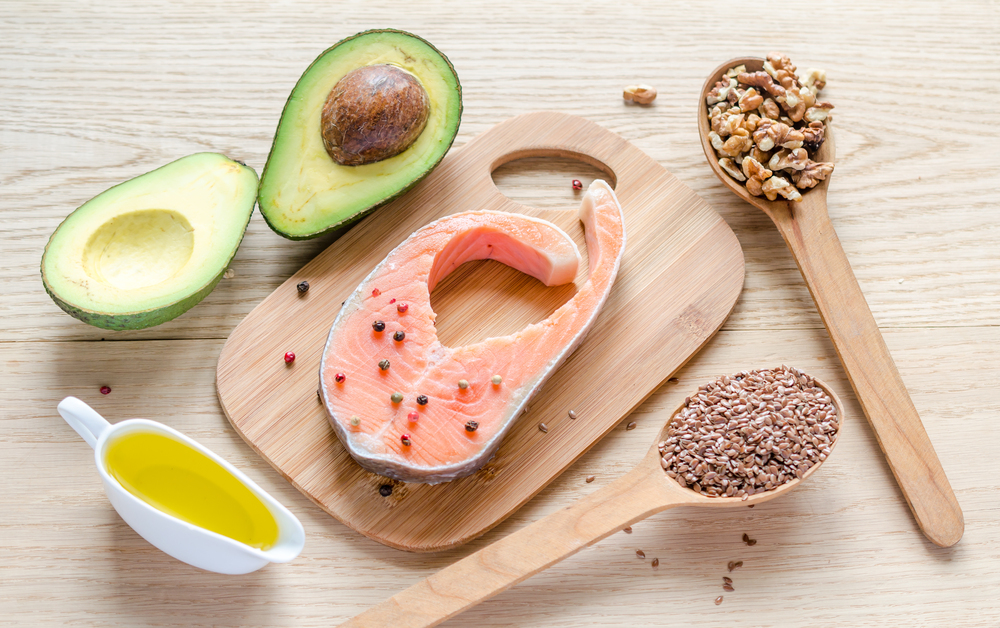Being healthy is often associated with being thin and having a lean physique. As a result of this, most people completely cut fats from their diet. It is important to understand that fat, on its own does not lead to weight gain, heart attack, or any other disease. One can lead a better life by knowing the facts about fats. The human body conserves the excess calories consumed in the form of fats. These conserved fats give us energy and increase the absorption of minerals and vitamins in the body. Here are some other facts that will help us understand the importance of fats for our body. It is important to debunk the myths about fats and start living right.
The Truth About Healthy Fats & Unhealthy Fats
There are different types of fats that come from varying sources and have their benefits or drawbacks. Fats that are coming from highly processed sources are usually the ones that we can easily access at fast-food restaurants. These fats are trans fats or saturated fats and can lead to serious problems for the human body. Some foods high in unhealthy fats are cheese, cookies, cakes, and margarine.
On the other hand, there are “good fats” which are called so because they are super advantageous for the human body. The facts about these fats cannot be ignored and their qualities make them a vital part of any diet. Monosaturated and polysaturated fats are rich in omega-3 fatty acids which can help to reduce the risk of memory loss, heart disease, and joint pain. “Good fats” are a must for our everyday diets. These fats help us to feel fuller and boost the overall health of the body. Some good fat sources are almonds, coconuts, eggs, avocados, dark chocolate, salmon, and walnuts.
Eating Fats Will Not Cause Weight Gain
When it comes to weight loss, dietary fat is not equivalent to body fat. People following high-fat diets can lose weight just as well as those following low-fat diets. Consumption of extra calories is the reason for fat formation in the body. Those calories can also come from carbohydrates or proteins. The key is to consume a moderate amount of food. Fats might as well be better than consuming proteins or carbohydrates because they are more filling and can satisfy your appetite. Ensure to incorporate healthy fats into your diet. Consumption of unhealthy fats can lead to problems in the long run.
“Good fats” Are Good For The Brain
Studies claim that consuming “good fats” keeps the brain healthy for a very long time. By eating the right amounts of beneficial fats, you can avoid many brain-related diseases, including Alzheimer’s disease. Saturated fats shall be avoided as they can cause inflammation in the brain. Alternatively, unsaturated fats are found to be useful to dampen the inflammatory response.
Fats Are Essential For The Proper Functioning Of The Body
Fats are a source of energy that the human bodies rely on when the carbs are all used up. Most foods provide a range of saturated and unsaturated fats. The composition of fats in different foods is what affects its functional and physical characteristics and impacts body health. Eating the right fats in sufficient amounts is important for a number of reasons. Fats do not only provide energy to the body but are also the structural components of body cells. They promote growth and development, along with brain and eye function.
Fats Can Help Balance Blood Glucose
It is a common misconception that eating fats can spike the blood glucose level. The facts are opposite to this myth, eating unsaturated fats can actually help to normalize the blood sugar level. Carbs, when paired with the right fats can aid to control the rise in blood sugar levels. Instead of completely removing fats from the diet, diabetic patients shall be careful to include the right type of fats in the right amount. It is recommended to eat a variety of whole foods that you enjoy.
It is important to keep in mind that all fat-free foods are not healthy, and all fats are not unhealthy. The key is to maintain a balanced diet. A balanced diet will make sure that your body is provided with all the nutrients that it requires for normal functioning. Foods that are rich in fats often come with a combination of saturated and unsaturated fats. It is important to make the right choice that suits your needs!














